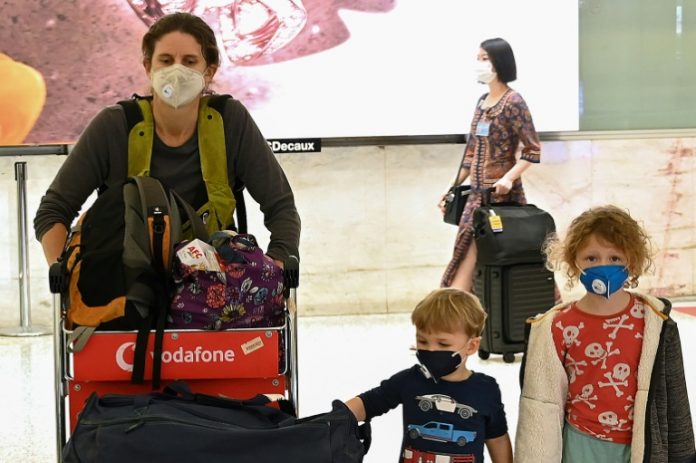Australia urged its citizens Wednesday not to travel abroad and warned those already overseas to rush home as it imposed unprecedented steps to choke off the spread of the coronavirus epidemic taking off Down Under.
Prime Minister Scott Morrison also ordered a halt to “non-essential” indoor gatherings of more than 100 people, on top of an existing ban on outdoor events of more than 500 that has stunned the sports-mad nation.
Although Morrison called the travel crackdown an “indefinite ban” on foreign trips, the official advice released by the government was couched as a recommendation.
“Regardless of your destination, age or health, our advice is do not travel at this time,” the foreign ministry’s “Smart Traveller” alert said.
A spokesman for national carrier Qantas said it would continue issuing tickets to Australians wanting to leave the country. “It’s advice, it’s not a ban,” he told media.
Morrison called the coronavirus pandemic “a once-in-100-year-type event.”
“We haven’t seen this sort of thing in Australia since the end of the First World War,” he said.
“We are going to keep Australia running, we are going to keep Australia functioning, (but) it won’t look like it normally does,” he said, girding the country for measures that will last at least six months.
Australia has more than 500 confirmed cases of coronavirus and just five fatalities.
But the number of infections have been escalating daily, with the majority of these new cases being returning travellers or people infected by them.
Australia joined neighbouring New Zealand Wednesday in urging citizens overseas to return home promptly or risk being stranded in an ominous sign they expect flights to the remote South Pacific nations may shut down entirely.
Both countries had already ordered all travellers arriving from overseas to self-quarantine for two weeks.
In announcing the ban on indoor gatherings of more than 100 people, Morrison excluded public transportation, shopping sites, health facilities and schools from the measure.
He rejected growing calls for the government to close all schools, as has been done in other countries, saying the impact on society and the economy from such a closure would be “severe”, costing “tens of thousands of jobs”.
“Whatever we do we have to do for at least six months,” he said, adding that among other consequences a long school closure would remove 30 percent of workers from the healthcare industry as parents remained home with their kids.
– ‘Un-Australian’ –
Australia’s chief medical officer, Brendan Murphy, also ruled out the kind of blanket shutdown that has been imposed in parts of Europe.
“A short-term, two-to-four-week shutdown of society is not recommended by any of our experts,” he said, speaking alongside Morrison. “It does not achieve anything, we have to be in this for the long haul.”
The latest moves to restrict foreign travel came as Australia’s two main airlines slashed overseas services, with Qantas axing 90 percent of flights and Virgin Australia grounding its entire international fleet.
Qantas shares fell more than 10 percent on the news.
New Zealand’s foreign affairs ministry warned more routes were set to shut down amid widespread travel restrictions.
“Many air routes will not remain commercially viable for long,” it said. “The options for New Zealanders to get home are reducing dramatically.”
New Zealand police meanwhile said they started checking up on recently arrived travellers to confirm they were following self-quarantine orders, visiting some 50 people.
Authorities in New Zealand and Australia have warned that anyone failing to follow the quarantine rules faces possible fines and even jail terms in some jurisdictions.
Morrison also joined supermarkets in calling for an end to panic buying, which has led to empty shelves and hit the most vulnerable hardest.
“We discourage the panic purchase of food and other supplies,” Morrison said.
“Stop doing it. It’s ridiculous! It’s un-Australian, and it must stop… We’re all in this together.”
















